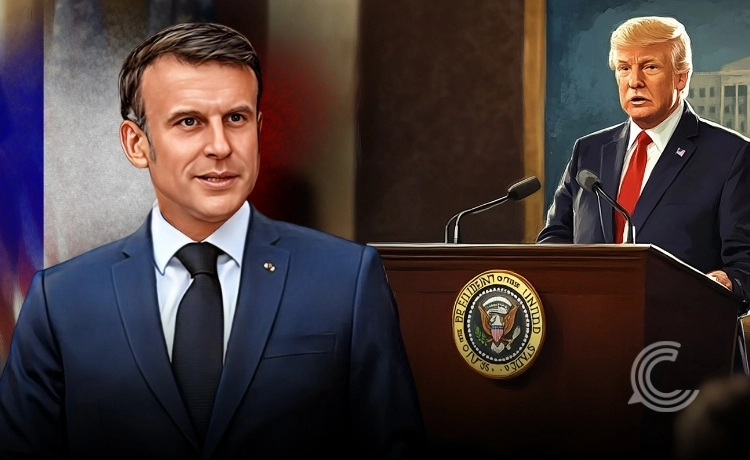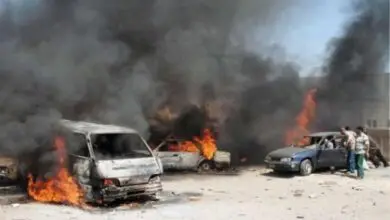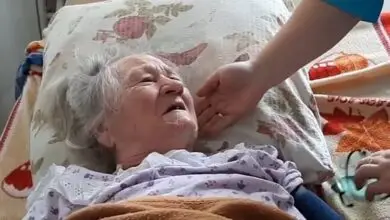Macron Pushes for ‘Improvements’ on Trump’s Ukraine Peace Plan

Key Points:
- French President Emmanuel Macron stated that Donald Trump’s 28-point Ukraine peace plan goes in the “right direction” but requires significant “improvement” to prevent Ukrainian “capitulation”
- European leaders, including Macron, reject the plan’s reported demands that Kyiv cede territory to Russia and accept limitations on its military size
- The relationship between Macron and Trump is characterized by a “bromance” marked by intense handshakes and public affection, juxtaposed with profound disagreements on NATO, Iran, and climate change
The complex, often theatrical relationship between French President Emmanuel Macron and former U.S. President Donald Trump has once again taken center stage, this time over the delicate issue of peace in Ukraine. Following the release of a 28-point U.S. peace proposal, Macron swiftly offered a clear European caveat: the plan needs “improvement” to be acceptable to both Ukraine and its European allies.
The Fault Line: Peace vs. Capitulation
French President Emmanuel Macron, speaking to RTL radio on Tuesday, November 25, 2025, delivered a measured but firm response to the recently proposed U.S. plan for ending the conflict. The initiative, driven by the Trump administration, reportedly caught many in Kyiv and Europe off-guard. The keyword for this story is Trump’s Ukraine peace plan.
Macron acknowledged that Trump’s Ukraine peace plan is an “initiative that goes in the right direction: towards peace.”However, he quickly added a crucial caution: “However, there are aspects of that plan that deserve to be discussed, negotiated, improved,” reported by Reuters.
The reason for the European objection lies in the details of the proposal, which, as reported, appear to align closely with Moscow’s long-standing demands. Specific points raising alarm across the continent include provisions that would require Ukraine to withdraw troops from parts of the eastern Donbas region and impose limitations on the size of the Ukrainian army.
“We want peace, but we don’t want a peace that would be a capitulation,” Macron asserted, stressing that only the Ukrainians could decide territorial concessions they are ready to make. European leaders are also rejecting the U.S.’s proposed handling of frozen Russian assets, with Macron declaring that these assets are predominantly located in Europe, and Europe alone can decide their fate. The French position signals a unified European intent to ensure that any deal does not effectively reward Russian aggression.
A History of Handshakes: The Trump-Macron Dynamic
To understand the current tension over Trump’s Ukraine peace plan, one must examine the highly unusual and often contradictory relationship between the two world leaders. Their dynamic has been famously dubbed “Le Bromance” by the media.
When they first met at the NATO summit in Brussels in 2017, Macron employed a deliberate strategy of “friendly but firm” engagement. Their initial handshake, a white-knuckled, jaw-clenching affair, was later acknowledged by Macron as a calculated “moment of truth.” This public display of alpha-dominance set the tone for a relationship characterized by extreme public displays of affection like hugs, shoulder pats, and prolonged hand-holding, alongside profound disagreements on key policy issues.
Trump, for his part, invited Macron to the first official state dinner of his presidency in 2018. At one point, the U.S. President even famously brushed what he called “dandruff” off Macron’s shoulder, proclaiming, “We have to make him perfect,” and “He is perfect.” This was widely interpreted as an attempt by Trump to assert dominance through what some nonverbal experts called “primate grooming.”.
Policy Clashes Beneath the Affection
Despite the theatrics and the bromance, the policy divide has always been vast, preventing the relationship from ever becoming a true partnership. Macron failed to persuade Trump to remain in the Paris Climate Accord or the Iran nuclear deal, two cornerstones of French foreign policy.
The tension resurfaced immediately upon Trump’s return to the political arena in 2024. While their latest meeting ahead of the vote on Trump’s Ukraine peace plan saw a return to the touchy-feely public style, Macron did not shy away from correcting Trump mid-sentence on the economic aid given to Ukraine, demonstrating that while the affection might be real, the French President remains unafraid to challenge his U.S. counterpart on facts and policy.



